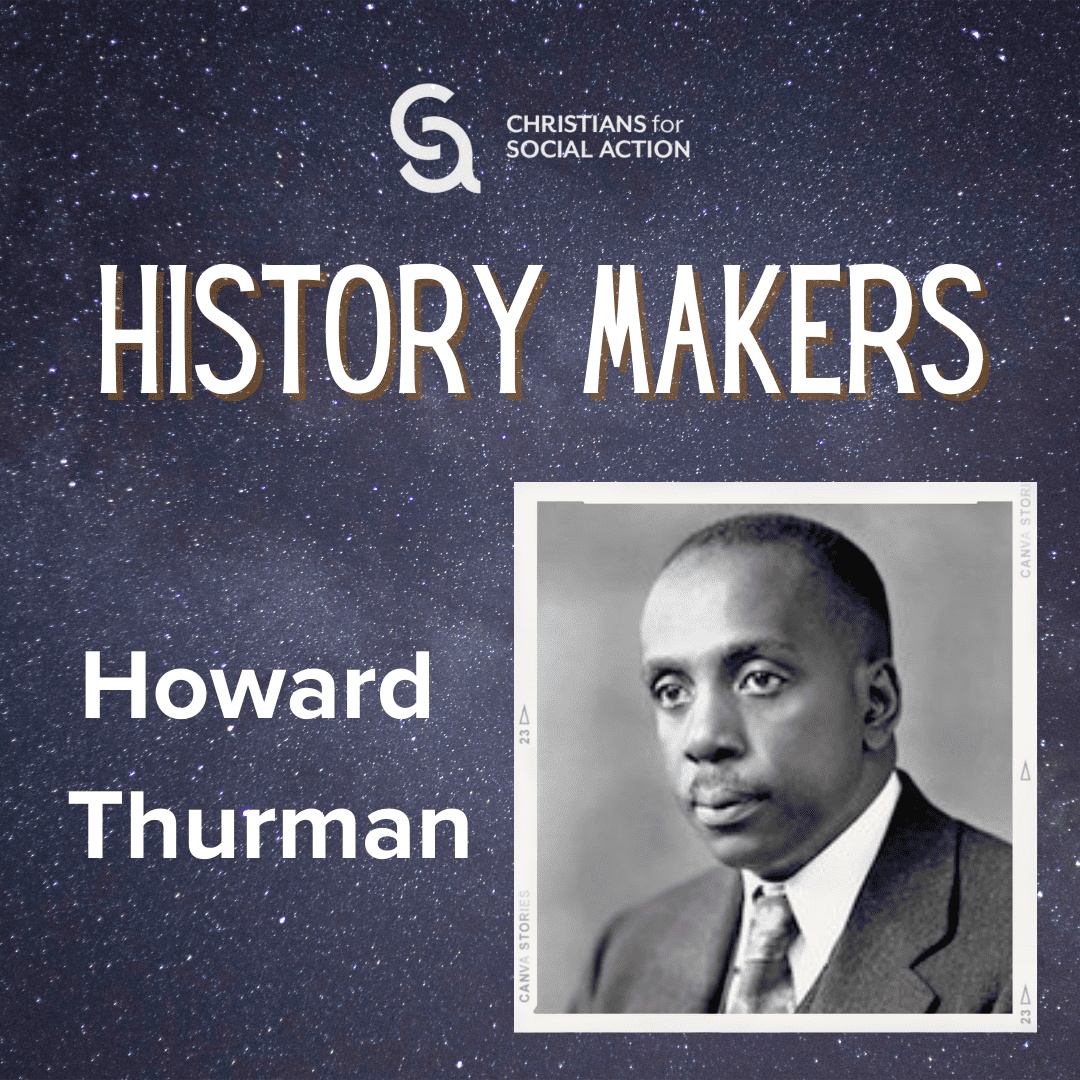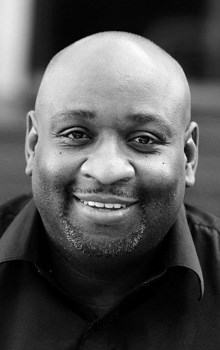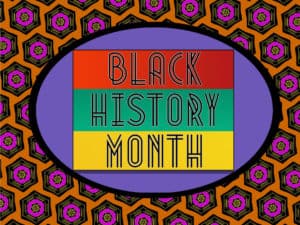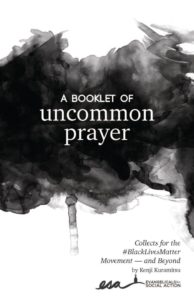 In celebration of Black History Month, we talked with four current Black leaders who are creating legacies of justice and shaping our lived history today, asking them, “Who from Black history inspires you?” This series invites you to journey with us as we profile the historical leaders from Black History whose legacies continue to inspire contemporary change makers. Today’s leader is Howard Thurman.
In celebration of Black History Month, we talked with four current Black leaders who are creating legacies of justice and shaping our lived history today, asking them, “Who from Black history inspires you?” This series invites you to journey with us as we profile the historical leaders from Black History whose legacies continue to inspire contemporary change makers. Today’s leader is Howard Thurman.
***
“Don’t ask yourself what the world needs. Ask yourself what makes you come alive, and go do that, because what the world needs is people who have come alive.” – Howard Thurman
Howard Thurman: Trailblazer in Theology, Civil Rights, and Social Justice
Born on November 18, 1899, in Daytona Beach, Florida, Howard Thurman stands as a towering figure in American history, leaving an indelible mark as an author, philosopher, theologian, and civil rights leader. His journey from the segregated South to becoming a mentor to Martin Luther King Jr. is a testament to his unwavering commitment to justice, equality, and the transformative power of nonviolence.
As he grew up in the crucible of racial injustice, Thurman’s roots were deeply intertwined with the struggles of his ancestors. His maternal grandmother, an enslaved woman, imparted a legacy of resilience that would shape Thurman’s convictions. Despite the challenges, Thurman graduated as valedictorian from both Morehouse College and Rochester Theological Seminary, establishing a foundation for his future endeavors.
Leadership in social justice movements:
Thurman’s impact extended far beyond the confines of academia. As a philosophy and religion professor and the first dean of Rankin Chapel at Howard University, he sought to bridge the gap between intellectual pursuits and societal change. His commitment to social justice led him and his wife to Southeast Asia in 1935, where they engaged in a transformative dialogue with Mahatma Gandhi on the efficacy of nonviolent direct action.
Mentorship and advocacy:
Thurman’s influence reached its zenith in his role as a mentor and spiritual advisor to prominent figures such as Jesse Jackson, Marian Wright Edelman, and the iconic Martin Luther King Jr. His philosophy of nonviolence, deeply rooted in his theological convictions, became a guiding light for the Civil Rights Movement. Thurman’s pivotal role in the Church for the Fellowship of All Peoples in San Francisco, a groundbreaking interracial congregation, further underscored his commitment to breaking down the barriers that divided people.
Legacy and achievements:
Possessing a prolific pen, Thurman authored 20 books on theology, religion, and philosophy. His most influential work, Jesus and the Disinherited (1949), profoundly impacted Martin Luther King Jr. and other leaders of the Civil Rights Movement. Thurman’s writings not only provided intellectual insights but also served as a rallying cry for justice and equity.
In 1953, Thurman made history as the first Black dean of a chapel at a majority-white higher education institution in the United States, when he assumed the role of dean at Marsh Chapel, Boston University. His groundbreaking achievements continued to earn him recognition, as he was hailed as one of the 50 most important figures in African-American history by Ebony magazine and ranked among the twelve most crucial religious leaders in the United States by Life magazine.
Howard Thurman’s life journey, marked by resilience, intellectual prowess, and unwavering dedication to social justice, continues to inspire generations. His legacy lives on not only in the pages of his prolific writings but also in the enduring impact he had on leaders who shaped the course of American history. Thurman’s teachings on nonviolence and his tireless efforts to bridge racial divides cement his place as a trailblazer in theology, civil rights, and social justice. As we reflect on his life, we acknowledge that Howard Thurman’s contributions remain pivotal in the ongoing pursuit of a more just and equitable society.
Learn more about Howard Thurman:
***
 Today’s History Maker Profile was nominated by current history maker Leroy Barber, who has dedicated 30 years of his life to eradicating poverty, confronting homelessness, restoring local neighborhoods, healing racism, and living into what Dr. King called “the beloved community.” Leroy is co-founder of the Voices Project and adjunct professor at Kilns College and Multnomah University. He is the author of four books: New Neighbor: An Invitation to Join Beloved Community; Everyday Missions: How Ordinary People Can Change the World; Red, Brown, Yellow, Black and White: Who’s More Precious in His Sight?; and Embrace: God’s Radical Shalom for a Divided World.
Today’s History Maker Profile was nominated by current history maker Leroy Barber, who has dedicated 30 years of his life to eradicating poverty, confronting homelessness, restoring local neighborhoods, healing racism, and living into what Dr. King called “the beloved community.” Leroy is co-founder of the Voices Project and adjunct professor at Kilns College and Multnomah University. He is the author of four books: New Neighbor: An Invitation to Join Beloved Community; Everyday Missions: How Ordinary People Can Change the World; Red, Brown, Yellow, Black and White: Who’s More Precious in His Sight?; and Embrace: God’s Radical Shalom for a Divided World.


